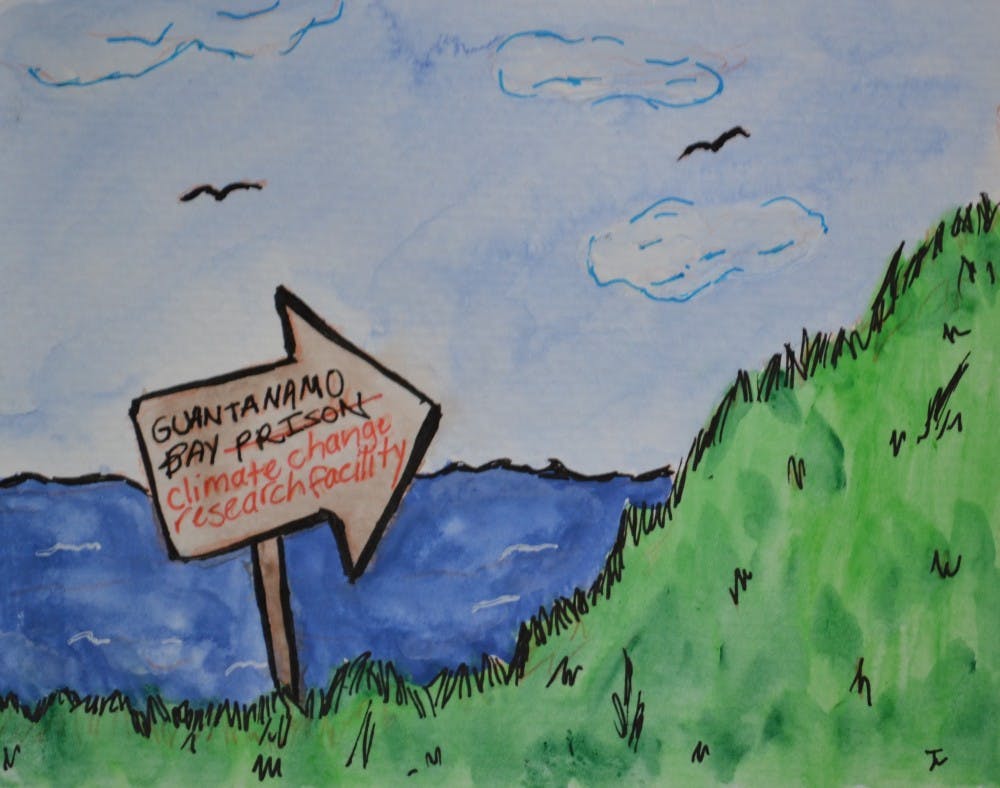Almost a year after lifting the United States embargo with Cuba, President Obama will visit the Caribbean nation again this Sunday.
The president said he hopes to improve the ties between the two countries and make the policy change irreversible, said Julie Hirschfield Davis of the New York Times.
And the nation can do so with science.
Joe Roman, conservation biologist at the University of Vermont, suggested to turn the Guantánamo Bay naval base into an environmental research center dedicated to finding solutions for “challenges of climate change, mass extinction and declining coral reefs.”
We, the Editorial Board, find the solution bold and ambitious, but a favorably constructive idea for the U.S. and Cuba.
The nation should focus on establishing peacefully diplomatic relations with Cuba while simultaneously thinking about establishing research labs and making scientific advances in the area.
The solution presents a long-term goal that should motivate making peace with the nation and fostering growth between the U.S. and Cuba.
This isn’t the first time the U.S. has teamed up with Cuba to protect biodiversity.
In October 2015, officials from both countries agreed to protect ecosystems, including coral reefs and fish, between Cuba and Florida, said William E. Gibson of the Sun Sentinel.
The solution would preserve the culture and knowledge between both nations, and, as the countries engage in scientific research with one another, it could spread awareness of our history with Cuba in a similar method the Guantánamo Public Memory Project has.
The relations between the U.S. and Cuba have been moving away from complete embargo and toward normalcy during the past few years.
Pope Francis and Obama met March 2014 to discuss the nation’s relation with Cuba, and, since then, the pope has mediated discussions between the two nations.
This has allowed U.S. banks to access Cuba’s financial institutions and a few U.S. institutions to make transactions under licensing and oversight by the U.S. Office of Foreign Assets.
The pope has expressed concerns about environmental conservation and protection, and hopefully he can continue to foster better relations between the two nations.
In attempt to strengthen our relations with Cuba, Roman’s proposal to build a research center would take advantage of the marine parks and rich biodiversity in the area.
The different species in the area include the Cuban iguana, the West Indian manatee, the green turtle and the hawksbill turtle, several of which are endangered.
Research in the area can help fight the problems these species face, and, of course, provide a better understanding of biological species.
Scientists from around the world could appreciate such biodiversity and, through this, understand both the U.S. and Cuba better.
Roman said there could be “genetics laboratories, geographic information systems laboratories, videoconference rooms” and other facilities for professionals from all nations to meet and study.
Obama still struggles against political rivals in closing the Guantánamo Bay prison.
It’s hard to see a solution like this one taken seriously by his opposition, but these opponents should remember the benefits such research can provide for everyone.
In the future, we could hope to use these facilities of knowledge and research as ways to bring everyone together to fight problems all human beings face.
In this search for peace, science leads the way.




